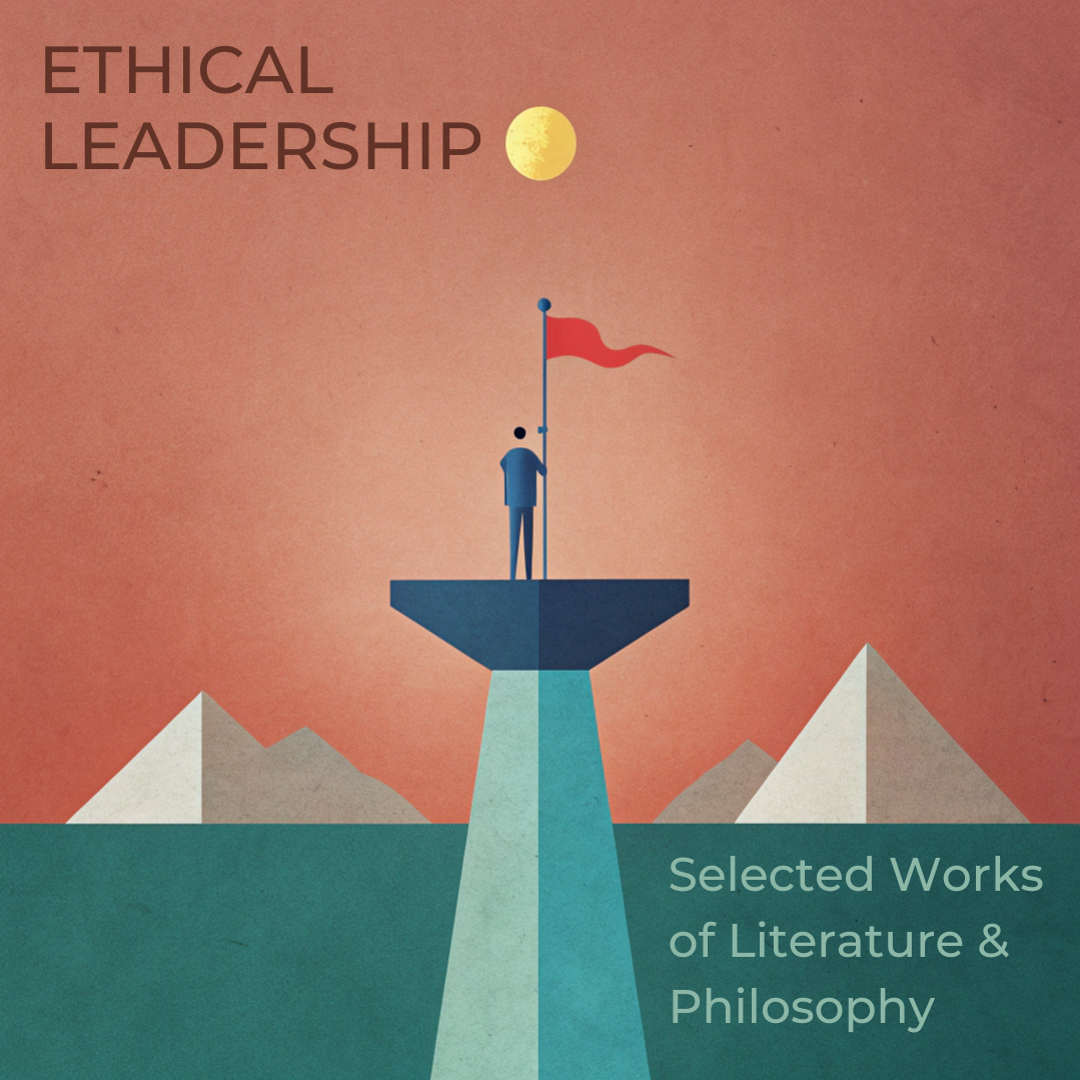Overview:
- Ethical leadership refers to guiding and empowering your subordinates through moral principles.
- To be an ethical leader is to be conscientious of your responsibilities towards your organization.
- A blend of Leadership and literature can become your ultimate weapon to success.
- Leadership philosophy remains unique to every individual but it can be enhanced with guidance.
It is a truth universally acknowledged that a fair leader inspires loyalty and open communication in their subordinates. An Ethical leader must remain fair, unbiased, and hold themselves accountable for their actions. From childhood to adulthood, stories possess an undeniable characteristic to them. The world of books comprises compelling anecdotes shaping how we perceive life. Hence, the role of literature and philosophy in shaping ethical leadership remains indisputable. This article endeavors to curate a reading list for executives featuring works exploring ethics and leadership themes. Explore the transformative power of literature and philosophy in shaping ethical leaders!

The Importance of Ethical Leadership
Under the existing modern dynamics of an urban organization, inclusive leadership ethics are crucial for the success of any business. With the spread of labor rights awareness, the impact of a business is proportional to its reliance on ethical leadership.
What Is Ethical Leadership?
Ethical Leadership is achieved through prioritizing ethics in decision-making. It also means putting those people in charge who follow an ethical code of conduct. An ethical leader possesses the ability to make sound decisions and act with integrity. This involves progressing forward with everyone, instead of ahead of everyone. Ethical Leadership is now becoming increasingly relevant in the business world.
Key Features of Ethical Leaders
- Strong moral compass: An ethical leader will never encourage their organization to follow unethical marketing strategies.
- Positive Attitude: They value respect and recognize that even small decisions can make a big difference. Hence, an ethical leader always listens and ensures everyone feels heard at work.
- Transparency: An ethical leader fosters a culture of open communication and trust in their company. This is because of their high level of emotional intelligence.
- Empathy: Ethical leaders prosper through their enhanced understanding of humanity. It is their responsibility to ensure the employees’ well-being and protect them from unfair practices.
- Integrity: An ethical leader must always do the right thing even when no one is watching. This also means that a leader should be inclusive and take responsibility for their wrongdoings.

Harness the Power of Literature for Ethical Leadership
Even though it’s more subjective and open-ended than factuality in regular case studies. Works of literature can be read as an extensive case study. Leadership and Literature can offer a nuanced insight into management through its unique perspectives.
Saint Joan by George Bernard Shaw
This work is one of the best plays written by Shaw. The plot revolves around the rise of a peasant girl to an unprecedented leadership position. Joan of Arc claimed to be guided by divine force. She led the French Army against the British colonizers during the Hundred Years’ War. However, her authority and unconventional methods drew the scorn of the Church. Hence, Joan was tried, accused of heresy, and burned at the stake. Joan’s legacy lies in her heroic leadership and challenges traditional gender roles. Her leadership qualities like conviction, charisma, and morality elevated her status to a martyr and a saint. Shaw’s play is a lesson all aspiring leaders must subscribe to.
Hubris and Hamartia in F. Scott Fitzgerald’s The Great Gatsby and Arthur Miller’s Death of a Salesman
Fitzgerald’s magnum opus novel The Great Gatsby sheds a stark light on the dazzling era of the Jazz Age. The plot underscores the rags-to-riches journey of the protagonist Jay Gatsby. It begins with his affair with Daisy, who is a beautiful girl from high society. To reach Daisy’s social status, Gatsby ventures into unethical business strategies as a shortcut to material wealth. It becomes evident that Gatsby’s drive for social mobility reflects the elusive nature of American society in the 1920s. His unchecked ambition and penchant for impulsive gestures prove fatal when the novel ends.
Whereas, Arthur Miller’s play Death of a Salesman presents the last day of a mediocre salesperson with existential delusions. Consumed by the illusions promised by the American Dream, Willy Loman dreams of imagined wealth and material prosperity. His belief that charisma and good looks are keys to success becomes his downfall. Willy’s arguments with his wife and the increasing emotional distance from his sons eventually lead to the character’s tragic demise. The play reveals how leadership requires authenticity, resilience, and the ability to adapt, rather than clinging to outdated ideals.
In this case, leadership and literature unravel the themes of ambition, integrity, and the American Dream.
Girish Karnad’s Tughlaq
Girish Karnad’s play elucidates the troubling rulership of the 14th-century Sultan Tughlaq. The protagonist of this drama Tughlaq is portrayed as strong, unconventional, and wise as a leader. His bold decisions like moving the capital from Delhi to Daulatabad ignites skepticism amongst his subjects. The play extrapolates on how Machiavellian leadership fails to garner respect and loyalty from one’s subordinates. As corruption grows under his reign, Tughlaq ultimately acknowledges that his deceitful techniques have isolated him from his country’s peers. Tughlaq’s lofty ideals and his failure to listen to his subordinates reveal leadership can never be just a one-sided hierarchy. The loss of touch with his subjects and his country folk’s disillusionment is a confounding indictment of his leadership.

Philosophy as a Guiding Principle in Ethical Leadership
Philosophy provides readers with introspection and musings about the different ways in which humanity functions. Since philosophy peers into the principles of morality, ethics, identity, and being, it can unlock your potential in ethical leadership. The process of incorporating philosophical entities into business style refers to philosophical counseling. The following readings can help create a unique leadership philosophy.
Plato’s Theaetetus
Socrates was the mentor of Plato and was known for his philosophical knowledge of leadership and its ethics. Plato wrote this dialogue between Socrates and Theaetetus as he was interested in investigating the nature of knowledge. Socrates believed that true wisdom comes from knowing oneself as self-aware leaders can make informed decisions based on their capabilities. Socrates often stressed the importance of humility, courage, and discipline in his treatise. The famous Socratic method refers to asking probing questions that lead to logical conclusions. In business, leaders who encourage critical thinking and open dialogue often stand out.
Nicomachean Ethics by Aristotle
Cited as one of the best works, Nicomachean Ethics is an enriching read on the tangibility of a good life. Aristotle raises poignant questions on the dichotomy of human action and ethics. As a result, Aristotle emphasized the importance of Phronesis; practical wisdom. A leader achieves practical wisdom when they incorporate the practice of Eudaimonia; the art of collective well-being. Ethical leadership involves cultivating practical wisdom by balancing short-term gains with long-term consequences.
Nietzsche’s Will to Power and Thus Spake Zarathustra
As a German philosopher known for his controversial ideas, Nietzsche propounded some fascinating theories on leadership. Nietzsche believed that all humanity strives toward becoming the Ubermensch; the limitless man. To become the Ubermensch, one must have the innate Will to Power. According to Nietzsche, a good leader must assert themselves, practice self-overcoming, and be conscious of moral relativism. It is the idea that every culture has a different code of ethics. Thus, an ethical leader must navigate ethical dilemmas while considering context, consequences, and long-term impact.
Conclusion:
Ethics has a profound significance in leadership. As a mirror of society, literature plays a huge role in enhancing personality. Similarly, ethical leadership and philosophy are symbiotic. One cannot exist without relying on the other. Get closer to creating your leadership philosophy by learning life lessons from the above books.


